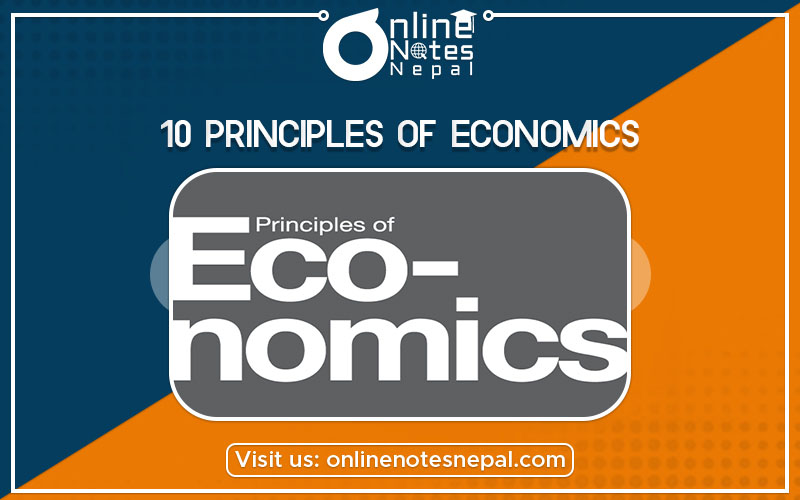Published by: Zaya
Published date: 15 Jun 2021

The principles of economics are divided into three parts they are, how people make a decision, how people interact, and how the economy works. The principles of economics are described below:-
1) People face tradeoffs.
People live in society. They face different kinds of tradeoffs. Society faces a trade-off between efficiency and equity. Efficiency means that society is getting the maximum benefit from its scarce resources. Equity means that those benefits are distributed fairly among society members. Often when government policies are designed, these two goals conflict.
2) The cost of something is what you give up to get it.
Because people face trade-offs, making decisions requires comparing the costs and benefits of an alternative cause of action. The opportunity cost of an item is what a person gives up to get that item. When making any decision, a decision-maker should be aware of the opportunity cost of an item is what a person gives up to get that item. When making any decision, the decision-maker should be aware of the opportunity costs that accompany each possible action.
3) Rational people think at Margin
Rational people often make a decision by comparing marginal benefits and marginal costs. In economic analysis, we will encounter firms that decide how many workers to hire and how much of their product to manufacture and sell to maximize profits. Similarly, we encounter consumers who buy a bundle and goods and services to achieve the highest possible level of satisfaction, subject to their incomes and the prices of those goods and services.
4) People respond to incentives
Since rational people make decisions by comparing costs and benefits, they respond to incentives. The study of the behaviors of buyers and sellers in relation to the optimum allocation of scarce resources based on incentives is the main basis of the price mechanism.
5) Trade between the countries can make each country better off.
Countries, as well as families, benefit from the ability to trade with one another. Trade allows countries to specialize in what they do best and to enjoy a greater variety of goods and services.
6) Markets are usually a good way to organize economic activity
The recent days, most of the countries are oriented to develop the system of the market economy. Firms decide whom to hire and what to make. Households decide which firms to work for and what to buy with their incomes.
7) The government can sometimes improve market outcomes
All peoples rely on government-provided policy and courts to enforce their property rights over the things we product-and in invisible hand counts on our ability to enforce our rights. Thus, the government plays an important role in promoting efficiency and equity.
8) A country’s standard of living depends on its ability to produce goods and services
All types of variation in living standards are attributable to the difference in the country’s productivity-that is the number of goods and services produced from each hour of worker’s time.
9) prices rise when the government prints too much money
Based on the economic history of the world and various empirical researches, it is concluded that all cases of large or persistent inflation were the outcome of growth in the quantity of money.
10) Society faces a short-run tradeoff between inflation and unemployment
It is mainly caused by the short-run effects of monetary injections. For e.g. when the money supply increases in the economy it stimulates the overall level of spending and thus the overall level of spending and thus increases demand. Increased demand pushes the price level on one side and on another side, it encourages to production more quantity of goods and services to the firm.